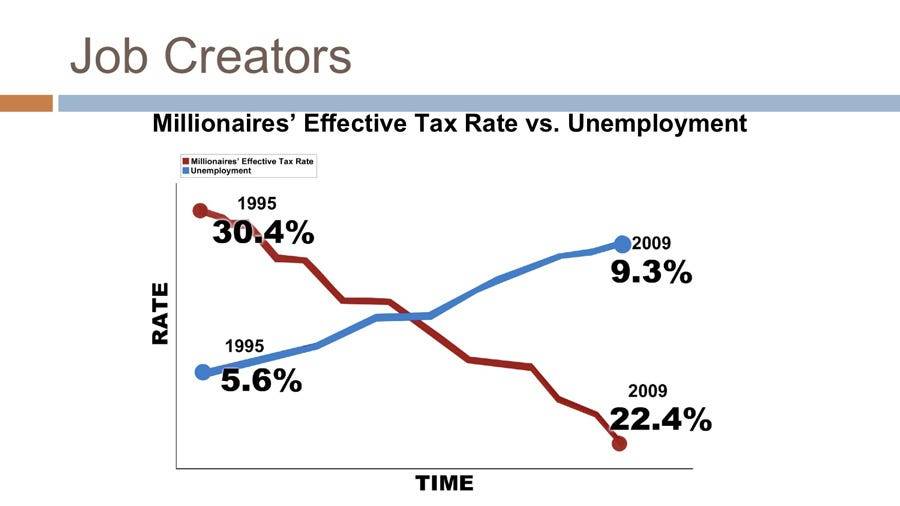By Kenneth Quinnell
In the face of a constant stream of arguments from Republicans that the wealthy are job creators and thus deserve lower taxes, billionaire venture capitalist Nick Hanauer recently gave a 'TED Talk' explaining that the rich don't create jobs, but that it is instead consumers who create jobs. TED is an annual conference for elite Americans where presenters talk about various technology and other topics and the so-called 'TED Talks' are posted online, appear on YouTube and Netflix. Only in this case, the TED organizers are refusing to post Hanauer's talk, saying it is 'too controversial.' The step appears to be at odds with the way the organization has worked in the past, as it has frequently posted controversial TED Talks. It appears that TED chief Chris Anderson isn't comfortable with Hanauer's presentation, not that it is particularly controversial:
"An ordinary consumer is more of a job creator than a capitalist." ...really? as an ex entrepreneur who agrees with your overall stance, I don't think that statement is literally true. There are numerous jobs that exist because of the imagination, energy and risk-taking of individual capitalists or entrepreneurs such as you. An typical ordinary consumer might on average contribute to the creation of one job (but probably not more than one, because the numbers don't then add up.) "hiring more people is a course of last resort, done if and only if rising consumer demand requires it". ...I launched numerous magazines for each of which, at time of their launch, there was zero consumer demand.
In each of those cases I hired teams before launching and before knowing whether anyone would buy. Businesses do this all the time. They imagine a product, and take a risk. You might say there must have been latent demand, and that in the short time period you had, you didn't have time to fully flesh out the argument.. sure. But I think a lot of business managers and entrepreneurs would feel insulted by that statement as given.
Anderson sounds awfully defensive and his final statement is that 'business managers and entrepreneurs' would be insulted by something that is, it seems quite obvious, is the truth seems disingenuous at best.
An excerpt from Hanauer's presentation (see full talk below):
I can say with confidence that rich people don't create jobs, nor do businesses, large or small. What does lead to more employment is a "circle of life" like feedback loop between customers and businesses. And only consumers can set in motion this virtuous cycle of increasing demand and hiring. In this sense, an ordinary middle-class consumer is far more of a job creator than a capitalist like me.
So when businesspeople take credit for creating jobs, it's a little like squirrels taking credit for creating evolution. In fact, it's the other way around.
Anyone who's ever run a business knows that hiring more people is a capitalists course of last resort, something we do only when increasing customer demand requires it. In this sense, calling ourselves job creators isn't just inaccurate, it's disingenuous.
That's why our current policies are so upside down. When you have a tax system in which most of the exemptions and the lowest rates benefit the richest, all in the name of job creation, all that happens is that the rich get richer.
TED Refuses to Post Talk By Venture Capitalist Who Says Rich People Don't Create Jobs | Crooks and Liars
An Uber-Wealthy Venture Capitalist Gave A TED Talk Saying Rich People Don't Create Jobs
Nick Hanauer - YouTube


